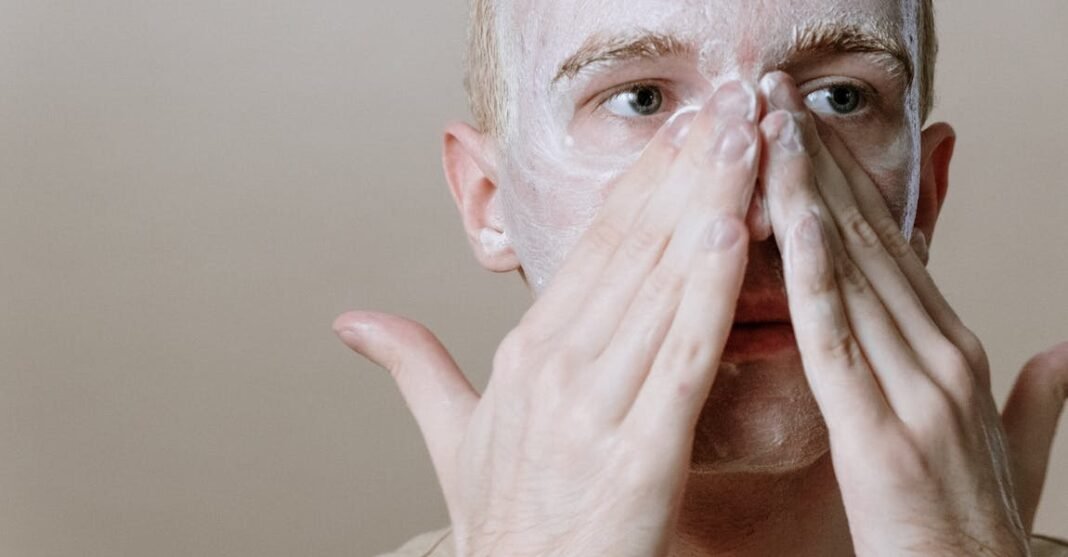With so much information and resources available about skin care finding, what will work right for you can seem like a daunting task. We understand how this can be so complex. That is why we have compiled some tips and tricks to help you to get healthy skin. Simply follow our solutions and immediately see the benefits.
For healthy skin, get more vitamin D. This vitamin acts like a hormone within our bodies and is essential to a very large number of body functions, including those that regulate the immune system and heal pimples. Many people don’t get enough vitamin D in their diets, so getting outside and getting sunlight so the body can produce its own vitamin D is an easy and important way to get more. You can also eat salmon, shrimp, sardines, cod, eggs or shiitake mushrooms for more vitamin D.
If you have combination skin, you need to address two challenges at once. First you will want to get a handle on the oil production, usually in the “T-zone” extending across your forehead and then vertically down your nose and chin. The second, is to provide enough moisture to the dry areas of your skin, usually your cheeks. You can achieve both goals by assiduously washing with gentle cleansers that will remove excess oil, without stripping your skin completely and then making sure the dry areas of your face are adequately moisturized.
If your skin is easily irritated, do not take it for granted that a skincare product that claims to be “for all skin types,” actually is. Instead, read the list of ingredients and avoid buying and using products that contain common irritating ingredients like camphor, menthol, witch hazel or citrus oils.
If you want your skin care to work for you, it is a good idea to find what skin type you have as different products help with different skin types. The characteristics of dry, normal, combination, oily or even sensitive skin vary, so be sure to tailor your skin care to the skin type.
Drinking plenty of water every day is important, as it keeps your skin smooth, moist, and soft. Mineral water is even better for your skin, though it can cost more money than some people like to spend. Try to drink at least sixty-four ounces of water every day for the best results.
One way to take care of your skin is to exfoliate longer. If you are aiming to deeply exfoliate, do not try to scrub harder as you clean your skin. Simply wipe longer because using too much pressure can actually be harmful to your skin, negating the beneficial effects of the product.
When shopping for a sunscreen to protect your skin from the harmful effects of UV radiation, be sure to select one that will adequately protect you. Your sunscreen should be at least 15 SPF and contain either zinc oxide or titanium dioxide. A sunscreen with a rating of 15 SPF will block about ninety-three percent of UV radiation.
Lemon juice is great for bleaching your skin. Lemon juice can be applied to scars, darkened patches of skin and blemishes to make them appear less noticeable. This lightening effect isn’t permanent and you should keep applying lemon juice periodically. It is preferable to bleaching products sold over the counter, which contain harmful chemicals.
For optimal sunscreen protection and good skin care, you need to apply far more sunscreen lotion with each application then you may think. Current estimates are that the average adult needs to apply a full ounce of sunscreen lotion (think standard shot glass!) in order to get the full spectrum of benefits from your sunscreen label. Look for a product with an SPF of 15 or higher and be sure to rub the lotion into your skin thoroughly. Don’t forget to re-apply every few hours if you are still outdoors.
Make sure to eat healthy foods to keep your skin looking healthy, too. When it comes to your skin, you really are what you eat. Be sure to eat lots of lean proteins, whole grains, vegetables and fruits, to nourish your skin so that it will stay vibrant and younger looking.
Give your skin a break. Always remove your makeup before going to bed, using a gentle cleanser. Go makeup-free one day a week if possible. This gives your skin a chance to breathe and rejuvenate itself. If the thought of going completely barefaced doesn’t appeal to you, use tinted moisturizer for a little color.
Apply sunscreen to your skin often. The directions for the sunscreen you are using will be on the back of the bottle. There are sunscreens that come in brush-on powder form if you are looking for an easier way to apply the stuff. They are compact containers, easy to apply, and you can bring it with you wherever you go.
Keep your hands clean and touch your face as little as possible. The sheer quantity of germs, dirt, oil and assorted grime that your hands come in contact with regularly is overwhelming. To make matters worse – you instinctively touch your face constantly; it is normal. Try to break the habit of touching too much and keep your hands washed often for the times when it is unavoidable.
An important tip about skin care for your baby is to know how to identify and treat baby yeast infections. This is important to know how to distinguish between this and other conditions. It is also known as thrush and will be whitish in color and usually in the mouth region. It occurs after receiving antibiotics and is treated with an anti-yeast medication.
This information will certainly help you to get the best quality skin care possible. Put this information to work for you today, and you will gain a spectacular advantage to your skin care needs. Not only will you save time, but you will also be able to save some extra money by using our tips.


